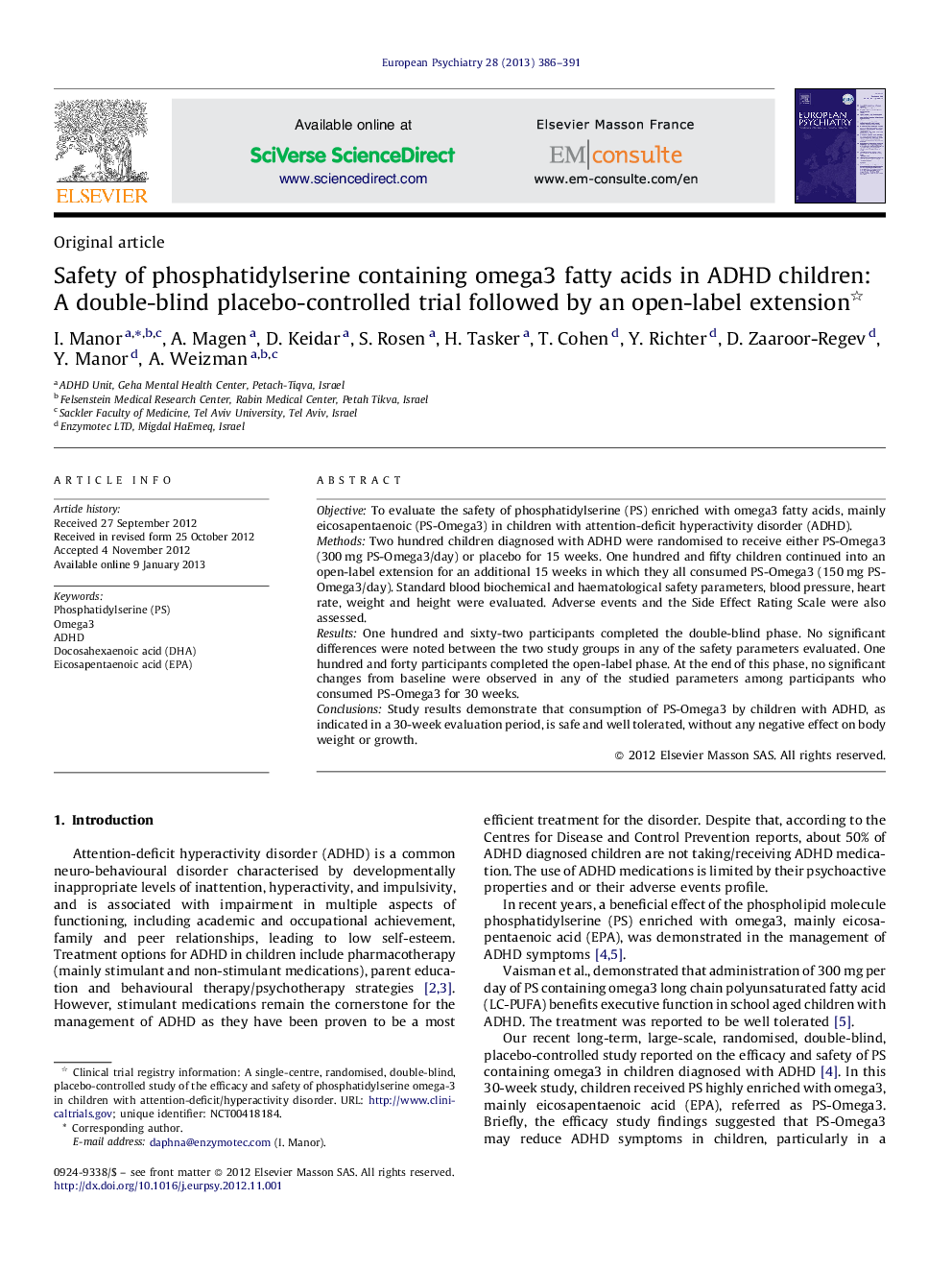| Article ID | Journal | Published Year | Pages | File Type |
|---|---|---|---|---|
| 4184313 | European Psychiatry | 2013 | 6 Pages |
ObjectiveTo evaluate the safety of phosphatidylserine (PS) enriched with omega3 fatty acids, mainly eicosapentaenoic (PS-Omega3) in children with attention-deficit hyperactivity disorder (ADHD).MethodsTwo hundred children diagnosed with ADHD were randomised to receive either PS-Omega3 (300 mg PS-Omega3/day) or placebo for 15 weeks. One hundred and fifty children continued into an open-label extension for an additional 15 weeks in which they all consumed PS-Omega3 (150 mg PS-Omega3/day). Standard blood biochemical and haematological safety parameters, blood pressure, heart rate, weight and height were evaluated. Adverse events and the Side Effect Rating Scale were also assessed.ResultsOne hundred and sixty-two participants completed the double-blind phase. No significant differences were noted between the two study groups in any of the safety parameters evaluated. One hundred and forty participants completed the open-label phase. At the end of this phase, no significant changes from baseline were observed in any of the studied parameters among participants who consumed PS-Omega3 for 30 weeks.ConclusionsStudy results demonstrate that consumption of PS-Omega3 by children with ADHD, as indicated in a 30-week evaluation period, is safe and well tolerated, without any negative effect on body weight or growth.
